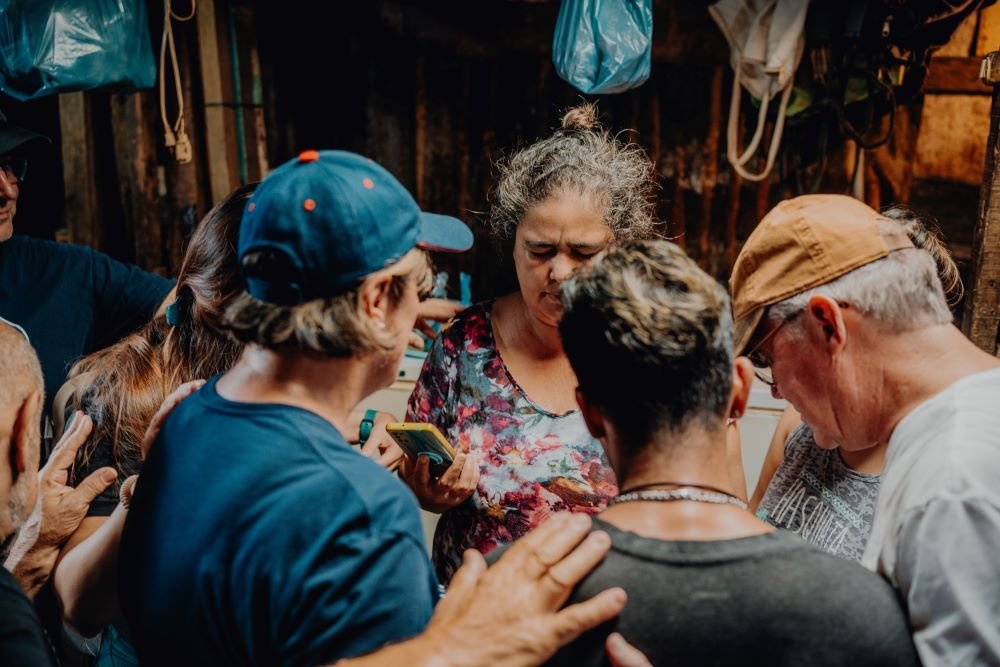FAQS: Answers to Your Most Frequently Asked Associational Questions
If you work in any sphere for long enough, you get used to answering a few of the same questions. And associational work is no different. Especially when Baptist structure can be complex and even confusing, it's nice to have a friend you can ask for advice.
So the staff of UBA got together to help answer some of your frequently asked questions before you even need to ask them. We hope this article can help you learn something new or even have a laugh.
1. Can the association fire a pastor?
Do you want us to do all your dirty work?
But seriously, Baptist churches, unlike many other denominations, have always held to the local autonomy of each church. That means churches do not answer to a denominational leadership structure. The local association, state conventions, and national conventions have no authority over the local church.
That means the association does not step into or control the inner workings of the local church (and we don't want to!) So, we’re not allowed to hire or fire pastors either.
However, we can and have offered advice from one of our church consultants who have walked this journey with other churches. Consultants can provide advice on best practices, what to look for, what to avoid, etc., as your church seeks to proceed. But we only do this when one of our churches reaches out.
2. Is Josh Ellis like the Baptist bishop in town?
No, that's just a long-running joke. But if you want to know more about Baptist structure, affiliations, and funding, Josh recently wrote a helpful explainer article.
3. How much money does UBA receive from the state conventions?
Almost none. It's a common misunderstanding that local associations like UBA receive their funding from state conventions or the Southern Baptist Cooperative Program.
However, local associations are not part of the cooperative program. UBA receives most of its funding via direct gifts from churches and donors.
4. Can you find a youth pastor (teaching pastor, music minister, or other staff/volunteer) for us?
The quick answer is no. However, we can do several things to help you find a minister of music, a pastor, or any other staff needs for your church.
We can post your job request on our website or our media platforms.
We can connect you with all the pastors and churches that could help you in this search through collaboration.
The third thing I think is the most important. We can help you become a sending church, one that identifies, develops, and sends your own leaders and ministers through our sending pathway initiative.
5. Can you fund our church's ministry?
We wish we could help fund your church's ministry. We simply do not have the resources for that. BUT, we are a collaborative network of churches focused on the strategic advance of the Gospel of Jesus Christ.
You might consider partnering with another one of our churches or one of our state conventions. We can help you get connected. You might also consider applying for grants. Together, we equip each other for the task ahead. We are Better Together.
6. Does the association have my grandfather's baptism certificate?
We are sorry; the association does not have baptism certificate records from any of our churches. That is because Baptist churches are autonomous, in other words, self-governing. Each church keeps and tracks its own records and does not share that information with other entities.
You would need to contact the church directly to get a copy of the baptism certificate or a letter to confirm your baptism at that church.
7. Does UBA have the records of churches that have closed?
For the same reasons in the previous question, the association does not have the records of churches that have closed down either.
Sometimes, our staff members have been around long enough to remember helpful information about a church’s location and former leaders, but official records are usually one of the many things lost when a church disbands.
8. Does UBA acquire the property of churches that close down?
Not quite. The UBA Foundation assists churches with property and asset-related issues. Sometimes, this means helping churches that are closing navigate the many details of transferring their property to other UBA churches so ministry can continue in that location.
This process might involve a dissolution clause or a reversion clause that grants UBA ownership of the property as an alternative to selling to non-church entities.
However, the UBA Foundation exists so the property will ultimately end up in the hands of a vibrant congregation well-suited to serve that community. The reversion clause helps protect the physical foothold of churches from being lost to high real estate prices and new developments.
In other words, we do not want to acquire church properties, but we can help closing churches use their assets to reach future generations.
We hope these questions have helped you learn something new (or at least given you a chuckle). In all seriousness, we're here to work for you and answer your questions, so please reach out!










Equipping African American and multicultural leaders for gospel work